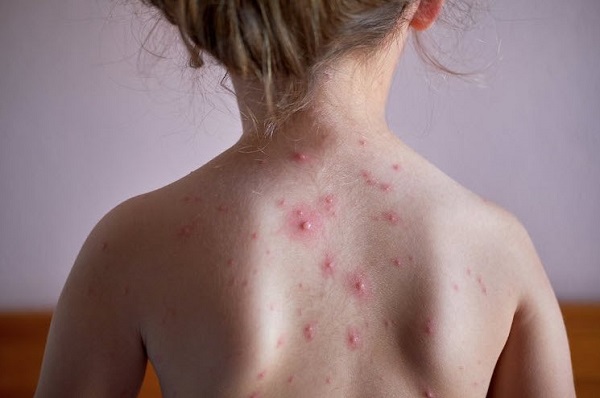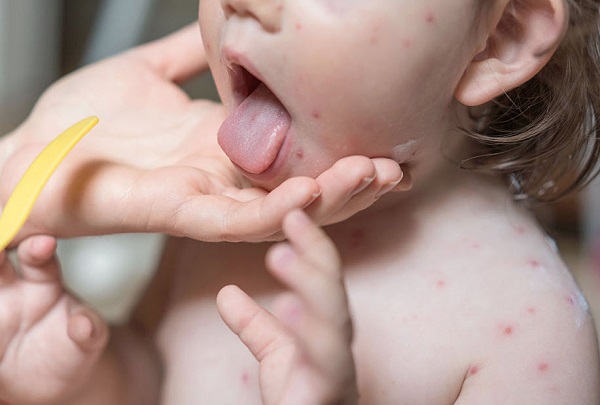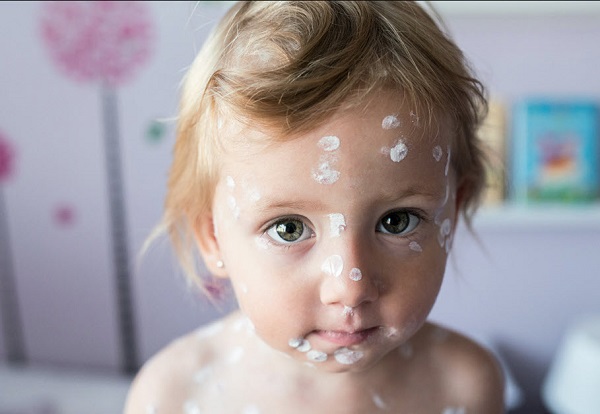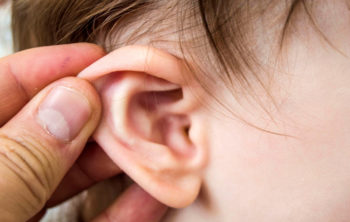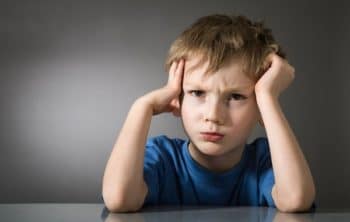There is no one definitive answer to the question of how long chickenpox last. The varicella-zoster virus, which is more commonly known as chickenpox, is a highly contagious infection that typically affects children. Chickenpox symptoms can include fever, rash, and blisters on the skin. While chickenpox is generally a mild disease, it can occasionally cause serious complications. In this blog post, we will take a closer look at how long chickenpox lasts and what steps you can take to help speed up your recovery.
Contents
What is chickenpox?
Chickenpox is a highly contagious infection that causes a characteristic skin rash. The disease is caused by the varicella-zoster virus, which is a member of the herpesvirus family. Chickenpox used to be a very common childhood illness, but since the introduction of vaccines, its incidence has declined dramatically. However, chickenpox can still occur in unvaccinated children and adults who have never had the disease.
A child with chickenpox can easily give the virus to other children. Chickenpox today is much less common because most children are vaccinated when they are young. Before the first vaccine against chickenpox was approved in the U.S. in 1995, almost everyone got chickenpox. Very few had complications.
Now that chickenpox is much less common, it tends to be more severe when it does occur. The chickenpox vaccine is over 90% effective at preventing the disease. It is recommended that all children get the vaccine as part of their routine childhood immunization schedule. The chickenpox vaccine is safe and well-tolerated, with very few side effects.
Chickenpox is a itchy tiny blisters all over your body. You might not be able to go out in public or leave home for weeks afterwards, but luckily adults who get chicken pox can still infect others even if they’re sick! So make sure you protect yourself by getting vaccinated before those signs show up – then no matter what age group we are talking about (child/teenager), everyone will know how much faith our society believers when there’s an outbreak happening right now.
Who Gets It?
Kids under age 2 are the most susceptible to chickenpox. In fact, 90% of all cases occur in young children. But older kids and adults can get it too. You’re more at risk for chickenpox if you:
- Haven’t had the virus before.
- Haven’t been vaccinated for it.
- Work in a school or child care facility.
- Live with children.
If you have never had chickenpox and are not vaccinated, you should avoid contact with people who have the disease. If you are exposed to chickenpox, you should see your doctor right away. There is a medicine that can help prevent or treat chickenpox if taken within 72 hours of exposure.
How is chickenpox spread?
If your child has been exposed to chickenpox, they may appear to be fine for one to three weeks before feeling sick. Symptoms usually begin with a high fever, followed by a rash that begins as small red bumps and progresses to blisters. Children can spread the virus from one day before they show signs of illness to about five days after a skin rash appears.
The chickenpox virus is spread in several ways:
- Coming in contact with someone who has chickenpox. This can happen when a person with chickenpox coughs or sneezes, and you breathe in the virus particles.
- Breathing air from an infected person who sneezes or coughs. The virus can be spread through the air, so it’s possible to catch chickenpox from someone even if they’re not in the same room as you.
- Coming in contact with fluids from an infected child’s eyes, nose or mouth. If a child with chickenpox touches their own mucus or saliva, and then touches something that you touch, you could become infected. This is why it’s important to wash your hands often when you’re around someone with chickenpox.
Chickenpox is most commonly spread through direct contact with an infected person. However, it can also be spread through the air, so it’s important to avoid close contact with someone who has chickenpox. If you think you may have been exposed to the virus, watch for signs of illness and see a doctor as soon as possible. Early treatment can help prevent serious complications.
What is the difference between smallpox and chickenpox?
Chickenpox and smallpox are two diseases that produce rashes on the skin. However, they are caused by different viruses and have different severity levels. Smallpox is more serious and can be fatal, while chickenpox is generally less severe. The two diseases also have different types of rashes. Smallpox pustules look the same as each other, while chickenpox rash develops in waves with different individual spots. There is also a difference in how the diseases are spread.
Smallpox is highly contagious and can be passed through contact with an infected person or through the air. Chickenpox is less contagious and is typically only passed through direct contact with an infected person or through coughing or sneezing. Finally, smallpox has been eradicated, while chickenpox still occurs sporadically.
Symptoms And Causes:
What are the signs and symptoms of chickenpox?
The signs and symptoms of chickenpox are easy to spot. Many times, healthcare providers can simply look at a child’s skin and know if they have chickenpox. The most common signs and symptoms of chickenpox include:
- Fever: A child with chickenpox will often have a fever that lasts for one or two days.
- Fatigue: Feeling tired is another common symptom of chickenpox.
- Headache: A child may also experience a headache along with other symptoms.
- Stomachache: A stomachache that lasts for one or two days is also a common sign of chickenpox.
- Skin rash: One of the most distinctive signs of chickenpox is a skin rash that looks like many small blisters. These blisters may be filled with a liquid that looks like milky water.
- Scabs: Once the blisters break, they will often form scabs.
- Blotchy skin: The skin may also have a blotchy appearance.
- Spots that fade away: Another common symptom of chickenpox is spots on the skin that fade away after a few days.
If you suspect your child has chickenpox, it is important to contact your healthcare provider for an accurate diagnosis. Chickenpox can be a serious illness, so it is important to get medical treatment as soon as possible.
Diagnosis And Tests:
How is chickenpox diagnosed?
Chickenpox is generally diagnosed based on the characteristic rash. However, in some cases, laboratory tests may be used to confirm the diagnosis. These tests may include a blood test or a culture of fluid from the blisters. In some cases, a healthcare provider may also perform a skin biopsy. This involves taking a small sample of skin to be examined under a microscope.
Management And Treatment:
How can I help my child with chickenpox?
If your child has chickenpox, there are several things you can do to help them feel more comfortable and prevent the spread of the disease.
- Press a cool, moist rag on the rash. This will help soothe the itchiness.
- Keep your child cool. This will help reduce the fever and make them feel more comfortable.
- Encourage your child not to scratch. Trim their fingernails so they can’t scratch. This will help prevent further irritation and infection.
- Put a lotion with antihistamines on the rash. These lotions are available at the drugstore. If you don’t know what to buy, ask the pharmacist for help. The antihistamines will help relieve itching.
- Give your child an over-the-counter (OTC) form of antihistamine. Diphenhydramine (Benadryl®) and cetirizine (Zyrtec®) are two examples of OTC antihistamines. Follow the instructions on the package for dosage.
- Give your child a cool bath or shower every day. You can also give your child an oatmeal bath. When you’re drying them off, don’t rub with the towel. This will help soothe the itchiness and prevent further irritation.
If your child has a fever, do not give them aspirin. Aspirin can harm children who have fevers. If your child needs a pain reliever, use acetaminophen (such as Tylenol®). Ask your healthcare provider or pharmacist if you’re not sure what product to use.
To prevent dehydration, give your child fluids. Cold fluids and a soft bland diet will help if they have mouth sores.
Chickenpox is a highly contagious disease, so it’s important to take precautions to prevent the spread. Make sure your child stays home from school or daycare until all the blisters have crusted over. Keep them away from other people, especially pregnant women, infants, and anyone with a weakened immune system. If you have any questions or concerns, please don’t hesitate to speak with your child’s healthcare provider.
Prevention:
Can my child get a shot to prevent chickenpox?
Yes, there is a vaccine for chickenpox. It is safe and effective, and it is the best way to protect your child from the disease. The vaccine is recommended for all children, so be sure to ask your healthcare provider about it.
What should I know about the chickenpox vaccine?
The chickenpox vaccine is a safe and effective way to help protect your child from the disease. The vaccine is typically given in two doses, with the first dose given between the ages of 12 and 15 months, and the second dose given between the ages of four and six years. If you’re 13 or older and never got the vaccine, you should get two doses at least 28 days apart.
There are two types of chickenpox vaccines available: Varivax® and ProQuad®. Varivax® is a stand-alone vaccine that protects against chickenpox, while ProQuad® protects against measles, mumps, rubella and varicella (MMRV). Both vaccines are over 90% effective at preventing chickenpox.
It’s important to talk to your child’s healthcare provider about the chickenpox vaccine to ensure it’s the right choice for your family.
Who shouldn’t get the chickenpox vaccine?
There are a few groups of people who shouldn’t get the chickenpox vaccine. These include:
- People who have had a severe allergic reaction to a previous dose of the chickenpox vaccine
- People who are pregnant or breastfeeding
- Have problems with your immune system.
- Have tuberculosis.
- Aren’t feeling well. Get the vaccine when you feel better.
- Recently had a blood transfusion or any other live vaccines.
- People with a weakened immune system (due to disease or medication)
If you’re not sure if you should get the vaccine, talk to your doctor. They can help you make the best decision for your health.
FAQs Of Chickenpox:
What if my baby gets chickenpox?
If your newborn baby (up to age 3 months) gets chickenpox, let your healthcare provider know right away. Chickenpox is more dangerous to newborns than to other healthy people.
Newborns with chickenpox may need to be hospitalized and treated with antiviral medication. If you think your baby has chickenpox, call your healthcare provider right away. Early treatment can help prevent serious complications from chickenpox.
What complications are possible with chickenpox?
Chickenpox can lead to a number of complications, most of which are rare. However, it’s important to be aware of the potential for problems so that you can get treatment if necessary. Complications from chickenpox may include:
- Bacterial infections of the skin, blood, and soft tissues.
- Encephalitis.
- Pneumonia.
- Becoming dehydrated.
- Blood clotting or healing issues.
- Liver problems.
While these complications are serious, it’s important to remember that they are relatively rare. Chickenpox is usually a mild illness with few complications. However, if you or your child experience any of the above complications, it’s important to seek medical treatment immediately.
Who is more likely to have complications from chickenpox?
If you have chickenpox, there is a chance that you could develop complications. Complications are more common in certain groups of people, including:
- Very young babies.
- Teenagers.
- Pregnant women.
- People with weakened immune systems (such as cancer patients or those with HIV/AIDS).
- People being treated with chemotherapy or steroids.
If you fall into any of these categories, it is important to be aware of the potential complications and to seek medical help if needed. Some common complications from chickenpox include pneumonia, encephalitis (inflammation of the brain), and secondary skin infections. These complications can be serious, so it is important to get treatment early if you think you may have them.
Can chickenpox be fatal?
It’s very unlikely that you will die from chickenpox. Most people recover without complications. However, people have died from chickenpox. In the U.S., that number has dropped to about 20 people per year after mass vaccinations from some 100 deaths per year before vaccines were available. Hospitalizations decreased 84% from over 10,000 per year. Despite the low likelihood of death, it’s still important to be aware of the risks associated with chickenpox and to seek medical attention if you or your child develops any symptoms.
Chickenpox can cause serious health complications, such as pneumonia, encephalitis (inflammation of the brain), and blood infections. These complications are more common in adults than in children. If you or your child develop any of these complications, it’s important to seek medical attention immediately. Chickenpox is also more likely to cause severe health complications in pregnant women and people with weakened immune systems.
Pregnant women should not get chickenpox vaccines. People with weakened immune systems should talk to their healthcare providers about whether or not they should get the chickenpox vaccine. The chickenpox vaccine is the best way to prevent chickenpox and its complications. The vaccine is safe and effective for both children and adults. Everyone who is eligible for the vaccine should get it.
Can adults get chickenpox?
Yes, adults can get chickenpox, but it is usually not as severe as it is in children. The majority of adults who get chickenpox will have a mild case with only a few spots. However, some adults may experience more severe symptoms, such as fever and pneumonia. Adults who have never had chickenpox or who have not been vaccinated are at the highest risk for developing the disease.
Chickenpox is highly contagious and can be spread through coughing and sneezing. It can also be spread by contact with contaminated surfaces, such as door handles and clothing. If you think you or someone you know has chickenpox, it is important to see a doctor right away. Early treatment can help reduce the severity of the illness.
What are shingles?
Shingles is caused by the same virus that causes chickenpox. After you have had chickenpox, the virus lies dormant in your body. However, it can become active again later in life and cause shingles.
Shingles is also called herpes zoster, but it’s not the same as genital herpes. Like chickenpox, it looks like a rash made up of small bumps. Shingles can be painful and can take a while to heal. It will usually go away on its own in a week or two. There are vaccines available that can help prevent shingles or lessen its symptoms if you do get it.
If you have shingles, you can spread chickenpox to someone who has never had it. However, you can only get shingles if you have previously had chickenpox.
Shingles is a relatively common condition, especially in people over the age of 50. If you are experiencing symptoms of shingles, make an appointment to see your doctor. Treatment can help to lessen the symptoms and shorten the duration of the illness.
When should you call your healthcare provider if your child has chickenpox?
If your child has chickenpox, it is important to monitor their condition and call your healthcare provider if they develop any severe symptoms. Some signs that your child may be developing complications from chickenpox include:
- Acting ill and having a severe headache.
- Sores in the eyes.
- Sores that get bigger or have pus in them.
- Difficulty breathing or rapid breathing.
If your child experiences any of these symptoms, it is important to call your healthcare provider right away. Chickenpox can be a serious illness, and prompt treatment is necessary to ensure the best possible outcome.
When can my child go back to school?
If your child has chickenpox, they will need to stay home from school until the rash has scabbed over. This usually takes 7-10 days. Your child can return to school once all of the blisters have scabbed over and they are no longer contagious.
What are the three stages of chickenpox?
The three stages of chickenpox are usually described based on the appearance of the rash. In stage one, the rash is red and bumpy. Stage two is characterized by fluid-filled blisters. In stage three, the blisters break and scab over. chicken pox typically goes through all three stages within a two-week period. Though the rash may appear in different stages at different times, it is important to know that all three stages can occur simultaneously on different parts of the body.
Where does chickenpox usually start?
Chickenpox usually starts on your face and trunk (your chest and back). From there, it spreads to the rest of your body. Chickenpox is a very contagious disease, so it’s important to be aware of the signs and symptoms. If you think you or your child has chickenpox, it’s important to see a doctor right away. Early diagnosis and treatment can help prevent complications.
Can I get chicken pox twice?
It’s rare for anyone to get chickenpox twice, but it can happen. If you’ve already had chickenpox and are exposed to someone with the virus, you may develop a mild form of the disease called shingles. However, if you haven’t had chickenpox and are exposed to someone with shingles, you can develop chickenpox. Vaccination is the best way to protect yourself from both diseases.
How many days does it take to recover from chickenpox?
It usually takes 10 to 14 days for chickenpox to go away. However, some people may experience itching for several weeks after the rash has gone. To help relieve itching, you can take a cool bath or apply calamine lotion to the affected areas. You should also avoid scratching the rash, as this can lead to infection. If you have any concerns about your recovery, please speak to your doctor.
How chickenpox start?
Chickenpox is most commonly spread through direct contact with an infected person or through airborne transmission, such as when an infected person coughs or sneezes. The virus can also be spread indirectly, such as when someone touches a surface that has been contaminated with the virus and then touches their own eyes, nose, or mouth.
Symptoms of chickenpox typically appear 10-21 days after exposure to the virus. The most common symptom is a rash that begins as small, red bumps and progresses to fluid-filled blisters. The rash typically covers the entire body, including the scalp, soles of the feet, and inside the mouth. Other symptoms of chickenpox can include fever, fatigue, headache, and loss of appetite.
What chickenpox look like at first?
Chickenpox generally starts with a feeling of being ill, with fever and often headache or stomachache. A day or two after the onset of these symptoms, the characteristic rash appears. It begins as small red bumps that quickly turn into fluid-filled blisters. The rash usually spreads from the face to the trunk, then to the arms and legs.
The blisters eventually break and form crusts, which help the healing process. Chickenpox is usually mild, but it can be more severe in infants, adolescents, adults, pregnant women, and people with weakened immune systems. Complications are rare but can include pneumonia, encephalitis (inflammation of the brain), and secondary bacterial infections.
Most people recover from chickenpox within a week or two. However, the virus can remain in the body and cause shingles later in life. Shingles is a painful rash that usually occurs in adults over the age of 50. It is caused by the reactivation of the varicella-zoster virus, which lies dormant in nerve cells after causing chickenpox. People with weakened immune systems are at increased risk for both chickenpox and shingles. There is a vaccine available to help prevent both diseases.
When chickenpox contagious?
Chickenpox is a highly contagious viral infection that causes an itchy, blister-like rash. The virus can spread easily through coughing and sneezing, or contact with someone who has the virus. Chickenpox is most commonly seen in children under the age of 15, but adults can also get it. The good news is that chickenpox is usually not serious and most people recover within a few weeks. However, there are some complications that can occur, so it’s important to be aware of the signs and symptoms.
Chickenpox is contagious for about two days before the rash appears and until all the blisters have crusted over. This means that you can spread the virus even if you don’t have any symptoms yet. Once you have the chickenpox rash, you’re no longer contagious.
If someone in your household has chickenpox, it’s important to take some precautions to prevent the virus from spreading. First, make sure that the person with chickenpox stays home from work or school until all the blisters have crusted over. Second, avoid close contact with the person as much as possible. And third, clean surfaces that the person with chickenpox has come into contact with to prevent others from getting infected.
How long chickenpox last in adults?
Chickenpox generally lasts for about two to three weeks in adults. However, the virus can remain dormant in your body for years before reactivating as shingles.
Where did the name chickenpox come from?
The name chickenpox is derived from the Latin word for chicken, which is Gallus domesticus. The term was first used in print by English physician Thomas Sydenham in 1658. Chickenpox is a highly contagious disease caused by the varicella-zoster virus (VZV). It is characterized by fever and a rash of itchy, blister-like lesions that can cover the entire body.
When chickenpox vaccine invented?
The chickenpox vaccine was invented in the late 1970s. It was first used in the United States in 1995. The vaccine is made from a live virus. It is given to children between the ages of 12 and 15 months old. The chickenpox vaccine is more than 90% effective at preventing chickenpox. It is also effective at preventing shingles, which is a disease that can occur later in life. The chickenpox vaccine is safe and has few side effects.
Where to get chickenpox vaccine?
There are several ways to get chickenpox vaccine. You can get it through your doctor or at a clinic, pharmacy, or travel center that offers immunizations. Some schools and workplaces also offer chickenpox vaccine.
You can also buy chickenpox vaccine from some vaccine manufacturers. Check with your doctor or state immunization program to see if this is an option for you.
If you have questions about where to get chickenpox vaccine, talk to your doctor or another healthcare provider. They can help you find the nearest place to get vaccinated.
How many chickenpox vaccine doses?
The chickenpox vaccine is given as two doses. The first dose is typically given to children at around age 12 months, and the second dose is given at 4-6 years old. However, some children may only need one dose of the vaccine if they have certain medical conditions or are considered high-risk. Speak with your child’s healthcare provider to determine how many doses of the chickenpox vaccine they will need.
How many chickenpox shots are needed?
Chickenpox shots are typically given in a series of two doses. The first dose is usually given at around age 12 to 15 months, and the second dose is given at around age 4 to 6 years. However, some children may need an additional third dose of the vaccine if they did not receive the recommended two doses when they were younger. Speak with your child’s doctor to determine how many chickenpox shots they will need.
How much chickenpox vaccine cost?
The cost of chickenpox vaccines can vary depending on the type of vaccine, the amount needed, and the place of purchase. The average cost for a standard dose of chickenpox vaccine is around $70 per shot. However, some insurance companies may cover part or all of the cost of the vaccine. Additionally, some pharmacies offer discounts on vaccinations. To get the most accurate estimate of how much chickenpox vaccine will cost, it is best to contact a healthcare provider or local pharmacy.
Conclusion:
Chickenpox is a highly contagious infection that typically affects children. While chickenpox is generally a mild disease, it can occasionally cause serious complications. In this blog post, we have taken a closer look at how long chickenpox lasts and what steps you can take to help speed up your recovery. If you are experiencing any of the symptoms of chickenpox, please consult with your doctor as soon as possible.
Read more: Adenoids Removed: How Adenoids Are Removed?

